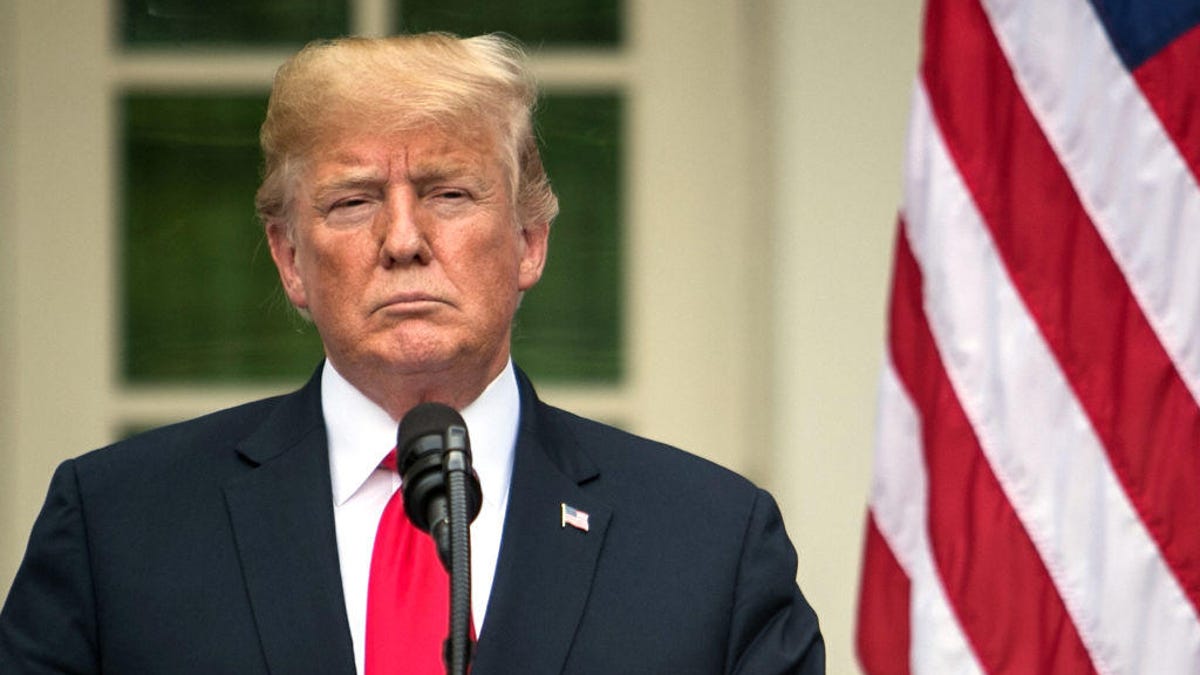Trump is turning up the heat on Google
The search giant is just the latest Silicon Valley company Trump has put in his Twitter crosshairs.

President Donald Trump accused Google of bias in its search results.
It isn't uncommon for President Donald Trump to take aim at political opponents in his Twitter feed. On Tuesday, he had a new target: Google.
"Google search results for "Trump News" shows only the viewing/reporting of Fake New Media," he tweeted. "In other words, they have it RIGGED, for me & others, so that almost all stories & news is BAD." In a follow up tweet, he continued, "Google & others are suppressing voices of Conservatives and hiding information and news that is good."
Google search results for “Trump News” shows only the viewing/reporting of Fake News Media. In other words, they have it RIGGED, for me & others, so that almost all stories & news is BAD. Fake CNN is prominent. Republican/Conservative & Fair Media is shut out. Illegal? 96% of....
— Donald J. Trump (@realDonaldTrump) August 28, 2018
Trump alleged that Google's search engine was deliberately working against him. But the search engine was actually working just as intended: prioritizing well-known news outlets over lesser-known ones.
The episode highlights just how much the discourse around tech companies has become beholden to Trump's Twitter fingers. In the past, Trump has also used his feed to go after Facebook, Twitter and Amazon.
"He probably Googled himself and didn't like what he found," said Bruce Schneier, a public policy lecturer at the Harvard Kennedy School of Government. "He's not going to see what fringe bloggers have to say."
Trump's tweets thrust Google into the spotlight of Washington scrutiny, after the search giant up until now had avoided much of the vitriol aimed at Facebook and Twitter. Lawmakers have had concerns over YouTube, owned by Google, brunt of the blowback has been directed at Silicon Valley's two most high-profile social networks.
"I think Google will be lumped in with the others more and more," said Schneier. "I don't think Google will get a free pass."
In an email, a Google spokeswoman denied Trump's claims that the company's search engine is biased. She declined to comment further.
Under the radar
Google has kept a lower profile than other companies during the backlash on tech. That's because Russian election interference -- the big hot-button issue for most lawmakers -- largely took place on Facebook and Twitter, Schneier said, while Google distanced itself from the social media crowd.
Google has also avoided much of the criticism over data collection that's ensnared Facebook. In March, Facebook confronted one of the biggest crises in its history when it was revealed that Cambridge Analytica, a digital consultancy, had misused the personal information of up to 87 million members of the social network. The scandal touched off a series of apologies, an overhaul of Facebook data policies and an expensive investigation into its relationships with app developers. It also landed Zuckerberg in the hot seat with Congress.
Google has been the center of a few privacy headlines since then. Last month, The Wall Street Journal reported that employees at some third party Gmail apps could read your inbox if you integrated those apps with your Gmail account. And earlier this month, the Associated Press reported that Google was still tracking users, even if they'd turned off a setting called Location History.
But though Google was criticized over those practices, the public outcry never reached the level it did with Facebook.
Going forward, Google could receive more public criticism. Asked later Tuesday, in the Oval Office, about his tweets, Trump doubled down.
"I think Google has really taken advantage of a lot of people," Trump told reporters. "Google and Twitter and Facebook, they're really treading on very, very troubled territory, and they have to be careful."
What is QAnon? The Deep State vs. Trump conspiracy, explained.
Follow the money: Google's US political advertising report shows Trump as biggest spender.

